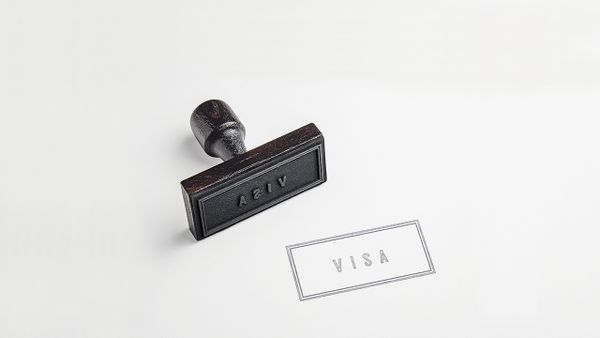BBB Warns of Scammers Targeting Immigrants Aspiring to a US Visa

A recent BBB scam warning sheds light on how scam artists, posing as US government officials, lure would-be immigrants to the US with the prospect of receiving one of the 50,000 visas granted by the Diversity Visa Program.
In March 2020, the US Department of State suspended routine visa services at all embassies and consulates, and the resumption of these services ultimately depends on the evolution of the pandemic and local conditions.
Multiple COVID-19-related proclamations were issued since the start of the pandemic, and scam artists could not turn down the chance to prey on immigrants seeking a United States work or study visa.
Scammers are sending unsuspecting victims bogus emails made to look as if they come from an official US immigration service or agency. While some recipients might ignore the notification, immigrants with urgent matters for travel may be tempted to access these fraudulent links.
During the so-called visa application, recipients are asked to provide their personal identifiable information (PII) such as name, date of birth, address, marital status, phone number, work history and passport photo.
“Getting this information and your money is the end goal of many scammers,” the BBB said. “Scammers have no intention of ever helping you apply for a visa.”
How can you avoid visa scams? The organization advises future visa applicants to stick to official US government websites that end in “.gov,” such as state.gov and dvlottery.state.gov.
“Some websites and emails try to mislead customers and members of the public into thinking they are official U.S. government websites,” the Department of State said. “These websites are designed to appear official, and often have images of the U.S. flag, U.S. Capitol, White House, or Statue of Liberty. What these websites and emails are missing is the “.gov” suffix on their addresses. Remember that anything that does not end with “.gov” should be considered suspect.”
Additionally, be wary of any individuals who claim to provide assistance with immigration visa applications, as this does not improve the chances of selection. Visa applicants should also check for website lookalikes and brush up on scammer tactics.
Use a digital identity protection solution that will let you know about leaks of your private information on Open Web or Dark Web and all major Social Media Networks. Thus, you can act immediately and prevent potential damages. Find out how it works here.
tags
Author
Alina is a history buff passionate about cybersecurity and anything sci-fi, advocating Bitdefender technologies and solutions. She spends most of her time between her two feline friends and traveling.
View all postsRight now Top posts
Start Cyber Resilience and Don’t Be an April Fool This Spring and Beyond
April 01, 2024
Spam trends of the week: Cybercrooks phish for QuickBooks, American Express and banking accounts
November 28, 2023
3 in 5 travel-themed spam emails are scams, Bitdefender Antispam Lab warns
August 10, 2023
FOLLOW US ON SOCIAL MEDIA
You might also like
Bookmarks








